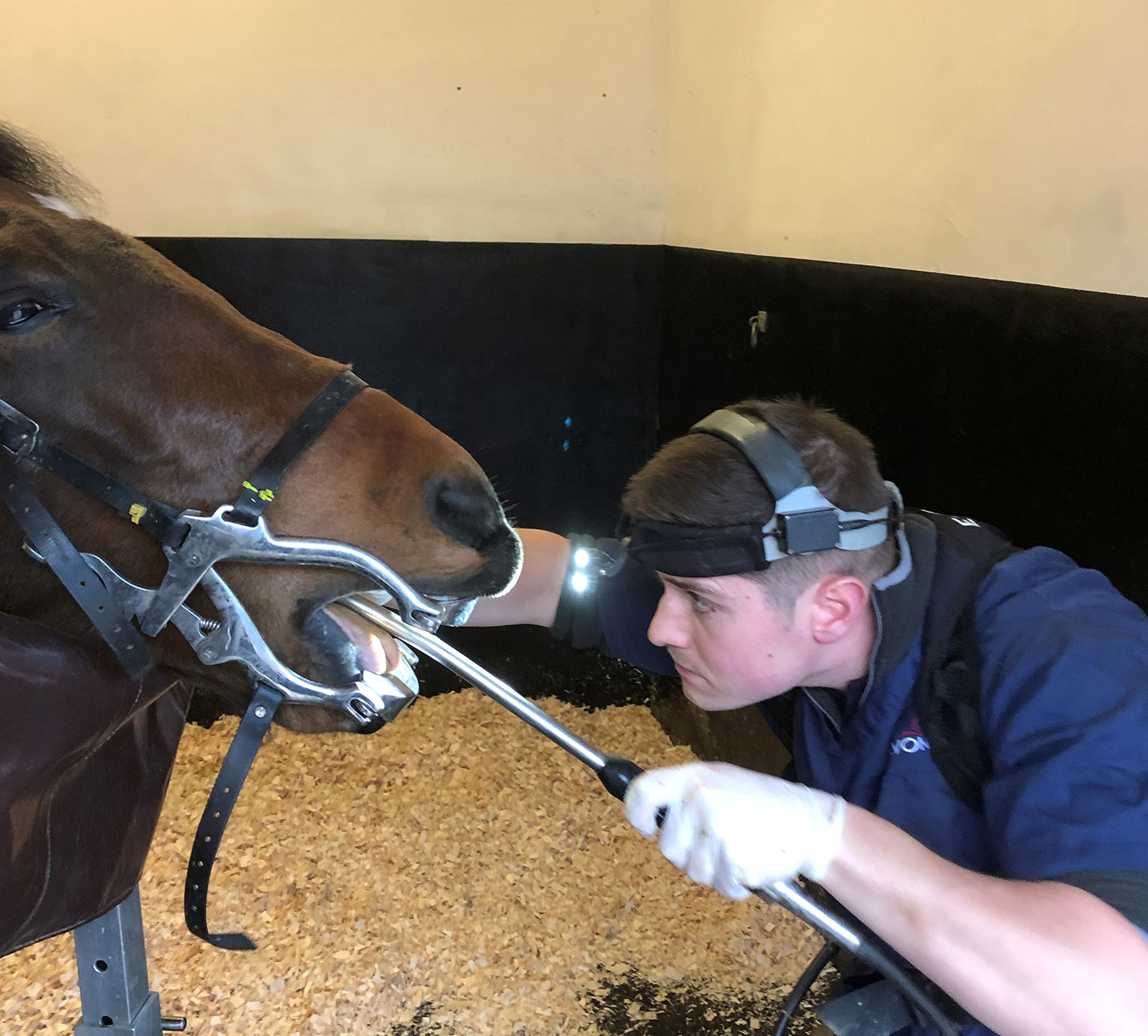Your horse’s dental health is crucial to his overall health and wellbeing. Dental problems can cause severe pain, behavioural problems and secondary health issues if they are not identified and treated appropriately. Therefore, it is vital to have your horse’s teeth examined regularly by either a qualified EDT or an equine vet.
This blog outlines the difference between an EDT and an equine dental vet, and explains why horse owners should always use qualified professionals to examine and care for their horse’s teeth.
The Evolution of Equine Dentistry in the UK
Equine dentistry has not always been as advanced and well-regulated as it is today. The British Association of Equine Dental Technicians was founded in 2001 to regulate and approve individuals carrying out dental work on horses. Since then, scientific interest in equine dentistry has grown enormously and as a result we now understand equine dental anatomy far better than we did 20 years ago.
Today, some equine vets choose to specialise in equine dentistry, including our resident equine dental vet Laura Holmes (BVM&S Cert AVP(ED) MRCVS).
Who Can Carry Out Equine Dentistry in the UK?
In the UK, there is no legal requirement for someone to be qualified, trained or experienced in order to carry out what is known as “category one” equine dental procedures. This includes basic use of manual rasps and removal of loose caps. However, it is strongly recommended that horse owners use either an EDT or an equine dental vet for all dental examinations, rasping and treatments.
What is an EDT?
An equine dental technician (EDT) is a qualified professional who can examine and evaluate a horse’s teeth. An EDT is allowed to carry out “category two” procedures, which include routine examinations and rasping using a motorised rasp.
To qualify as an equine dental technician in the UK, the individual must become a member of either the British Association of Equine Dental Technicians (BAEDT) or a category two member of the World Wide Association of Equine Dentists (WWAED). Members of these organisations must first pass exams.
BAEDT members must also carry out CPD, hold the required insurance and can be held accountable via a disciplinary process. All fully qualified BAEDT equine dental technicians are listed on the BAEDT register.
When You Will Require an Equine Dental Vet
Only a veterinary surgeon can carry out “category three” procedures, which include diastema treatment, extraction of unerupted (blind) wolf teeth, extraction of incisors, canines or cheek teeth and restoration. It is also illegal for anyone other than a veterinary surgeon to dispense, supply or stock prescription-only drugs, including Bute. Sedation must also be carried out by a vet.
A responsible EDT will be happy to work with your vet to ensure your horse receives the best possible care.
Alternatively, you can use your equine vet for all routine equine dentistry, including check-ups and rasping. This can be more straightforward if your horse requires sedation for routine examinations. Furthermore, should your horse require more advanced diagnostics, treatments or surgery, your vet will already be familiar with your horse and have the required skills, qualifications and equipment.
Equine Dentistry at Avonvale Equine Vet Practice
At Avonvale Equine Vet Practice, we have a team of highly qualified and experienced equine vets, including a specialist in equine dentistry. Our resident equine dental vet, Laura Holmes (BVM&S Cert AVP(ED) MRCVS) passed her synoptic exam in Equine Dentistry as part of her certificate in Advanced Veterinary Practice (CertAVP). This allows us to provide excellent equine dentistry from routine examinations right through to complex extractions and surgery. Register your horse, pony, donkey or mule with us today.








